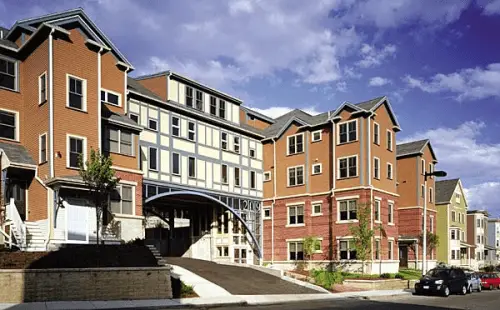From structural design to shared amenities, the similarities of living in a condo and a coop seem endless. However, these two popular residential spaces bear several differences that affect the overall quality of living. Read more to learn about these two housing options.
Summary Table
| Condo | Coop |
| Categorized as real property | Not categorized as real property |
| Condo unit owners do not need any approval from a board | Coop shareholders must be screened and approved by a coop board |
| More expensive | Cheaper |
| Residents are responsible for paying monthly utility bills, condo association fees, and property taxes for their own unit | Residents are responsible for paying their own monthly utility bills, along with coop fees and property taxes and mortgages for the building |
| Residents have full control over selling and renting out their unit | Residents have less control over selling and renting out their unit |
| Residents elect a condo board for the implementation of rules and regulations | Residents are part of the coop board |
Definitions

A condo is a shortened term for “condominium,” which is a residential building divided into privately-owned housing units.

A coop, commonly referred to as “housing cooperative,” is a multi-unit living space owned by an organization.
Condo vs Coop
While both are multi-unit residential spaces that offer amenities and services, there are huge differences between a condo and a coop.
Ownership
A condo is categorized as real property, which means that condo owners are given a property deed and are entitled to a privately-owned housing unit, along with the use of common areas like lawns, pools, and other amenities made exclusively for residents.
Unlike a condo, a coop is a type of living space that is not classified as real property.
It is owned by a company (e.g. limited liability corporation or non-profit organization) comprised of shareholders who are entitled to the use – but not the ownership – of a residential unit. Simply put, in contrast to buying a condo unit, coop shareholders buy a stock of the company, not a real estate property, which means that they only have “rights” to settle in the area.
Qualifications
Securing a condo unit is just like buying any type of real property wherein prospective buyers need to transact directly or indirectly – in this case, via a real estate agent – with the owner of the condo unit for sale. While legal considerations may vary from one state to another, buyers are typically required to fill in a buyer’s information sheet and submit requirements that include two copies of a government-issued ID and a marriage certificate, if applicable.
As compared to buying a condo, the process of buying stocks to secure a coop unit is longer and more complex.
For one, a coop board screens and approves aspiring shareholders based on their financial capability, their interpersonal skills, and their willingness to comply with the coop’s rules and regulations.
The requirements of buying shares from a coop include, but are not limited to, submitting a financial statement and a referral form.
Cost
Between the two, buying coop share is usually cheaper than buying a condo unit.
Monthly Fees and Taxes
Condo unit owners are fully accountable for settling their own monthly utility bills and property taxes, along with condo association fees, which cover the maintenance of the condo building.
Coop shareholders, on the other hand, are required to pay their utility bills and make a monthly contribution for the overall maintenance and operation of the entire residential space. These monthly fees also include mortgages and property taxes for the building, which are divided among shareholders. This goes in complete contrast with owning a condo unit, which makes property owners responsible only for the property tax of their privately-owned unit.
Rights
Unlike housing coops, condos offer more flexibility when it comes to selling or renting out individual units. Since a condo unit is privately-owned, residents have full control over selling or renting out their living space.
Coop shareholders, by contrast, need to obtain the approval of the board when it comes to choosing potential buyers.
Degree of Involvement
A condo and a coop are governed by rules and regulations set and implemented by a condo board and a coop board, respectively. However, between the two, coop shareholders have a higher degree of involvement when it comes to decision making since they are members of the coop board.
A condo board, by comparison, is elected by condo owners and is more involved in setting rules and making decisions. However, the board must still obtain approval from the rest of the unit owners before taking major actions such as a pool installation and any other improvements within the building.






